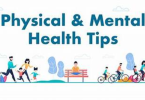In a world that moves at a rapid pace, slowing down can feel nearly impossible. You might be juggling responsibilities, deadlines, family demands, social pressures, or emotional stress that quietly builds over time. This is precisely why exploring self-care and stress relief wellness ideas is more important than ever.
Self-care is not indulgence; it is maintenance. Just as your phone needs recharging, your mind and body need consistent refueling. When you practice intentional self-care, you’re giving yourself permission to breathe, reset, and strengthen your resilience. This guide will walk you through detailed strategies—mental, physical, emotional, and creative—that you can incorporate into daily life, along with the benefits and the realistic drawbacks to keep in mind.
Self-care is one of the most effective ways to interrupt stress and support long-term wellness. It helps regulate your nervous system, boosts emotional stability, improves energy levels, and increases your ability to handle challenges with clarity.
Self-care and stress relief wellness ideas help you:
- Reduce anxiety and overwhelm
- Improve sleep quality
- Strengthen emotional balance
- Increase focus and productivity
- Support physical health
- Enhance self-awareness and self-compassion
Self-care is about creating space to meet your own needs before burnout forces you to stop.
1. Mental and Cognitive Self-Care

Your mind is constantly processing information, which makes mental self-care essential. These practices center your thoughts, calm your nervous system, and create mental clarity.
Deep Breathing Techniques
Structured breathing patterns like the 4-4-6 method can lower cortisol levels and slow a racing mind.
It’s a powerful technique you can use anywhere—before meetings, while stuck in traffic, or during moments of tension.
Journaling
Writing down your thoughts gives you a safe outlet to express emotions and gain clarity.
It can be as simple as three sentences about your day or a full page of reflection.
Meditation or Mindfulness
Even a few minutes of guided meditation can reset your mental state. It trains your mind to stay present instead of spiraling into stress.
Mental Breaks
Short breaks during work or household tasks help prevent burnout. A two-minute pause can stop overwhelm from snowballing into mental exhaustion.
2. Physical Self-Care to Release Stored Stress
Stress doesn’t just affect your mind; it settles in your muscles, breath, and posture. Physical self-care offers relief that you can feel immediately.
Stretching and Mobility Exercises
Gentle stretching improves blood flow, reduces tension in tight muscles, and boosts energy.
Movement and Exercise
You don’t need high-intensity workouts. Walking, yoga, light dancing, or simple home workouts can release endorphins and lift your mood.
Restorative Bathing or Showers
Warm water helps relax the nervous system and relieve physical tension. Adding calming scents like lavender or eucalyptus enhances the experience.
Healthy Hydration and Nourishment
Drinking water, eating balanced meals, and avoiding excessive caffeine can stabilize energy and reduce stress-related fatigue.
3. Emotional Self-Care to Support Inner Stability
Your emotional well-being influences everything—from decision-making to communication. These emotional self-care strategies help you stay grounded and supported.
Setting Boundaries
Saying no when needed protects your time, energy, and mental health.
Therapeutic Conversation
Talking with a trusted person or a professional helps you process emotions and prevents bottled-up stress.
Creating a Peaceful Atmosphere
Lighting a candle, decluttering a small space, or playing gentle music can shift your mood instantly.
Rest Without Guilt
Rest is a basic human need, not a luxury. Allowing yourself downtime builds long-term resilience.
4. Creative Self-Care to Express and Release
Creativity is a powerful stress reliever because it allows you to express emotions nonverbally.
Drawing or Coloring
Creative expression can be calming and meditative even if you don’t consider yourself artistic.
Cooking or Baking
Preparing meals mindfully can bring relaxation, satisfaction, and a sense of accomplishment.
Crafting or DIY Projects
Using your hands to create something can ease stress and bring joy.
Listening to or Making Music
Music has the ability to change your emotional state almost instantly.
5. Quick Stress-Relief Practices for Busy Schedules
If your days are packed, you can still practice self-care. These take only a few minutes:
- One minute of deep breathing
- Drinking a glass of water slowly
- Stepping outside for fresh air
- Listening to a calming sound or song
- A short neck or shoulder stretch
- Closing your eyes for thirty seconds
Small actions done consistently often create the biggest impact.
6. Building a Personalized Self-Care Routine
The best self-care routine is the one you can maintain. You do not need elaborate rituals or expensive products.
A simple routine might look like this:
Morning: Stretch for one minute
Afternoon: Step outside or drink water mindfully
Evening: Reflect by writing one sentence in a journal
Consistency matters far more than intensity.
Benefits of Using Self-Care and Stress Relief Wellness Ideas
1. Improved Emotional Regulation
You respond more calmly to challenges instead of reacting impulsively.
2. Better Physical Health
Reduced stress lowers blood pressure, muscle tension, and headaches.
3. Increased Productivity
A rested mind is more efficient, creative, and focused.
4. Prevention of Burnout
Consistent self-care keeps stress from becoming overwhelming.
5. Better Sleep
Relaxation techniques help quiet your mind and improve sleep quality.
6. Enhanced Self-Esteem
Taking care of yourself reinforces the belief that your needs matter.
You may also like to read these posts:
Best Fitness Advice for Weight Loss – The Complete, Real-Life, No-Nonsense Guide
How to Start a Healthy Fitness Routine: A Fully Detailed, Friendly, Beginner-Friendly Guide
Gym and Exercise Tips for Beginners: A Complete, Friendly, and Detailed Guide
Quick Fitness Hacks for a Busy Lifestyle: How to Stay Fit When You Have Zero Time
Drawbacks and Limitations of Self-Care Practices

While self-care is beneficial, it’s important to acknowledge realistic limitations.
1. It May Feel Time-Consuming at First
Starting new habits can feel challenging, especially if you’re already overwhelmed.
2. It Might Not Solve Deep-Rooted Issues Alone
Self-care helps manage stress, but long-term problems may require professional support or lifestyle changes.
3. Consistency Can Be Difficult
Busy schedules or emotional fatigue can make it hard to stick with routines.
4. Some Techniques May Not Work for Everyone
What relaxes one person may feel uncomfortable or ineffective for another. Experimentation is necessary.
5. Overemphasis Can Create Pressure
Self-care should relieve stress, not become another task that makes you feel inadequate when you miss it.
Final Thoughts
Practicing self-care and stress relief wellness ideas is an ongoing process rather than a one-time action. It involves learning how to listen to your body, honor your emotional needs, and make small choices that support your well-being. You deserve rest, peace, and moments of calm—no matter how busy or stressful life becomes.
If you’d like, I can also create:
- A longer blog-style version with SEO optimization
- A list-style checklist
- A printable routine guide
- A social media caption based on this article
FAQs
1. What is self-care and why is it important?
Self-care refers to activities and practices you intentionally do to maintain or improve your physical, mental, and emotional health. It is important because it helps reduce stress, prevent burnout, improve mood, and enhance overall well-being. Practicing self-care consistently allows you to recharge and face life’s challenges with more clarity and resilience.
2. What are some simple self-care and stress relief wellness ideas for beginners?
Simple practices include:
Taking short breaks during work
Practicing deep breathing or meditation
Going for a walk outdoors
Drinking water and eating nourishing food
Journaling thoughts or feelings
Listening to calming music
Starting with small, manageable actions helps you build consistency without feeling overwhelmed.
3. How often should I practice self-care?
Self-care is most effective when practiced regularly. This doesn’t mean every action needs to be time-consuming. Even 5–10 minutes daily can make a noticeable difference. The key is consistency—making self-care a part of your routine rather than an occasional indulgence.
4. Can self-care reduce stress effectively?
Yes. Engaging in self-care techniques like mindfulness, physical activity, or emotional check-ins can lower cortisol levels, calm the nervous system, and improve mental clarity. While self-care may not eliminate stress entirely, it helps you manage it more effectively and prevents long-term negative effects.
5. Are there any drawbacks to self-care?
While self-care has many benefits, potential drawbacks include:
Feeling time-pressured to “fit it in”
Relying solely on self-care instead of seeking professional help for deeper issues
Inconsistent practice may make it feel ineffective
Some self-care techniques may not work for everyone, requiring experimentation




